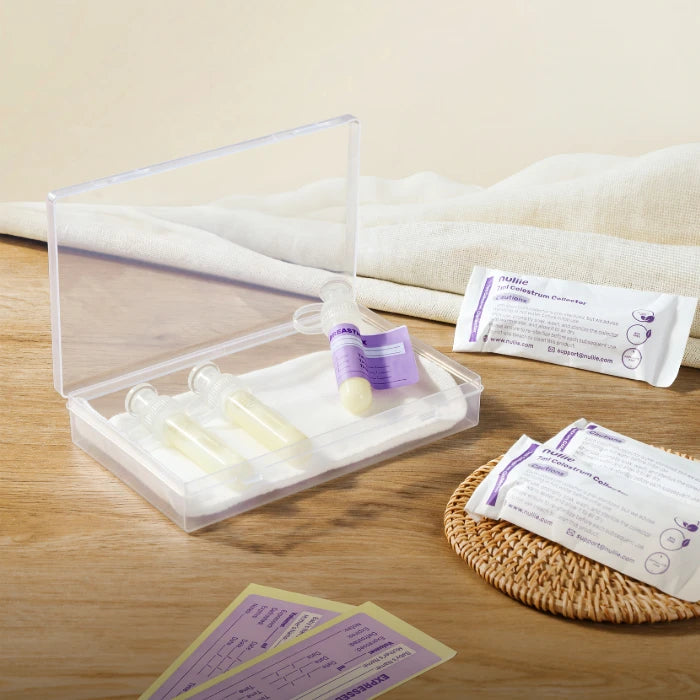Losing weight after childbirth might seem daunting amid nursing, diaper changes, and scarce sleep. However, you don't have to sacrifice breastfeeding to shed extra pounds. Here are four effective strategies to lose weight postpartum without affecting your milk supply.
Why Slow Weight Loss is Better for Milk Supply
Fast weight loss may sound tempting, especially when the internet contains “get-your-body-back” advice. However, cutting calories too quickly can impact your milk production. Your body uses significant energy to produce breast milk, which means it needs adequate calories to function properly. Experts recommend aiming for 1 to 2 pounds of weight loss per week to ensure a gradual, sustainable transition.This slow pace gives your body time to recover from the changes of pregnancy and childbirth. Hormones like prolactin, which regulate milk production, need time to stabilize. Extreme calorie restriction can throw these hormones off balance, reducing your milk supply and leaving you feeling fatigued. Remember, postpartum recovery isn’t just about weight—it’s about healing, hormonal balance, and energy restoration.
Losing weight too quickly may lead to nutritional deficiencies, making you more prone to mood swings and exhaustion. When you focus on gradual progress, your energy levels stay high, you feel less overwhelmed, and most importantly, your body keeps producing the milk your baby needs.

Creating a Healthy Calorie Deficit
Achieving weight loss requires a calorie deficit, but breastfeeding moms need to be careful about how they create it. It’s not about deprivation but small, thoughtful adjustments. Breastfeeding itself burns around 300-500 extra calories a day, so extreme diets are unnecessary. Instead, aim for a mild calorie reduction—just 300-500 fewer calories daily—and let the breastfeeding process do some of the work.A good starting point is cutting out empty calories. Replace sugary drinks with water or unsweetened herbal tea, and swap processed snacks for whole foods. Focus on portion control instead of skipping meals. For example, reduce carb-heavy foods at dinner and add more vegetables and lean protein.
Physical activity also plays a role, but there’s no need to jump into intense workouts. Walking with your baby in a stroller or doing gentle yoga sessions are great ways to burn calories without adding stress. As your body adjusts, you can gradually introduce more structured exercise routines like Pilates or low-impact strength training. The goal is to balance calorie intake and output while giving your body the time it needs to adjust.

Nutrient-Dense Snacks for New Moms
Snacking is an essential part of breastfeeding, especially since nursing increases hunger levels. But instead of reaching for high-sugar or processed snacks, choose nutrient-dense foods that keep you satisfied and energized. Snacks rich in protein, fiber, and healthy fats will fuel your body without causing energy crashes.Some excellent choices include:
- Greek yogurt with berries:Provides calcium, probiotics, and antioxidants.
- Almonds or walnuts:Packed with healthy fats and protein to keep you full.
- Apple slices with almond butter:A perfect combination of fiber and fats.
The key is balance—snacks should satisfy cravings and sustain energy levels between meals, making your weight loss journey both healthy and enjoyable.

Staying Hydrated Without Overdoing It
Hydration is vital for breastfeeding, but overhydrating won’t help you lose weight faster. Instead of forcing yourself to drink gallons of water, listen to your body’s natural thirst cues. Breastfeeding moms typically need more water than usual, but there’s no magic number—drink whenever you feel thirsty, especially after nursing sessions.Carrying a reusable water bottle throughout the day can serve as a helpful reminder to sip often. If plain water feels boring, infuse it with fruit slices, mint, or cucumber for a refreshing twist. Coconut water is also a great option, offering electrolytes without added sugar. Herbal teas like rooibos or chamomile provide hydration and a calming effect—perfect for soothing stressful moments.
Avoid overloading on caffeinated drinks or sugary sodas, as they can lead to dehydration and disrupt your energy levels. Aiming for consistent hydration will not only support your milk production but also help you feel more alert and energized throughout the day. Staying hydrated also keeps your metabolism functioning smoothly, aiding your weight loss efforts in subtle but important ways.

Losing weight while breastfeeding doesn’t mean sacrificing your well-being or your milk supply. The key is to embrace gradual progress. Focus on nourishing your body, creating a gentle calorie deficit, and making smart food choices. With nutrient-dense snacks and mindful hydration, you’ll feel energized and motivated to meet your weight-loss goals—without burning out.
Remember, it’s a marathon, not a sprint. Celebrate the small wins, be kind to yourself on tough days, and know that every little step counts. You’ve already done something incredible by bringing new life into the world—now it’s time to take care of yourself, too. You’ve got this, mama!





Leave a comment
This site is protected by hCaptcha and the hCaptcha Privacy Policy and Terms of Service apply.